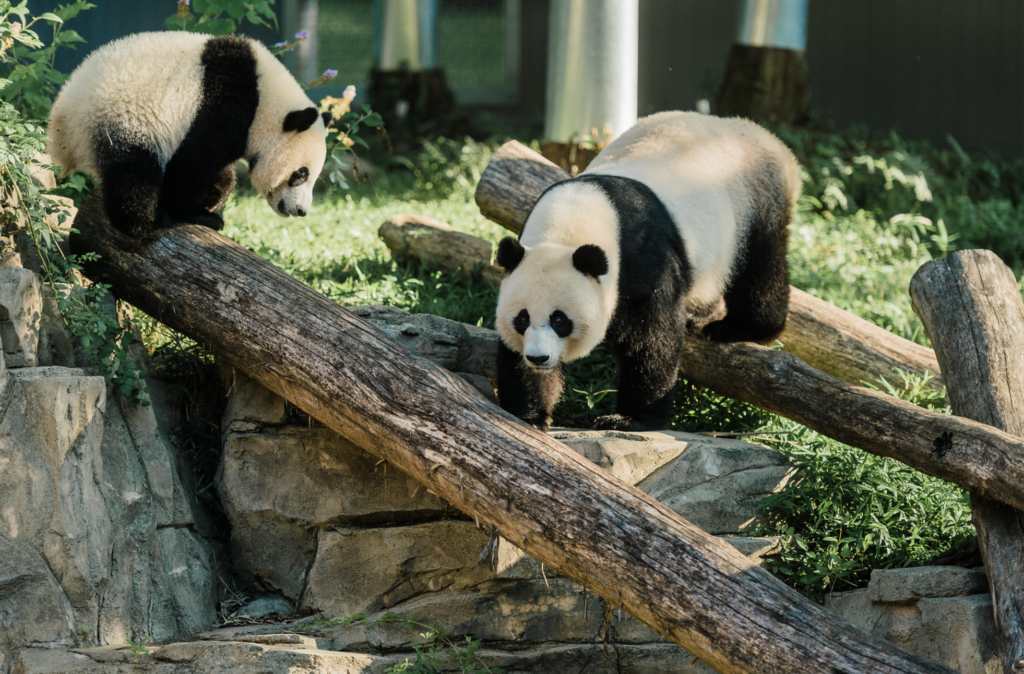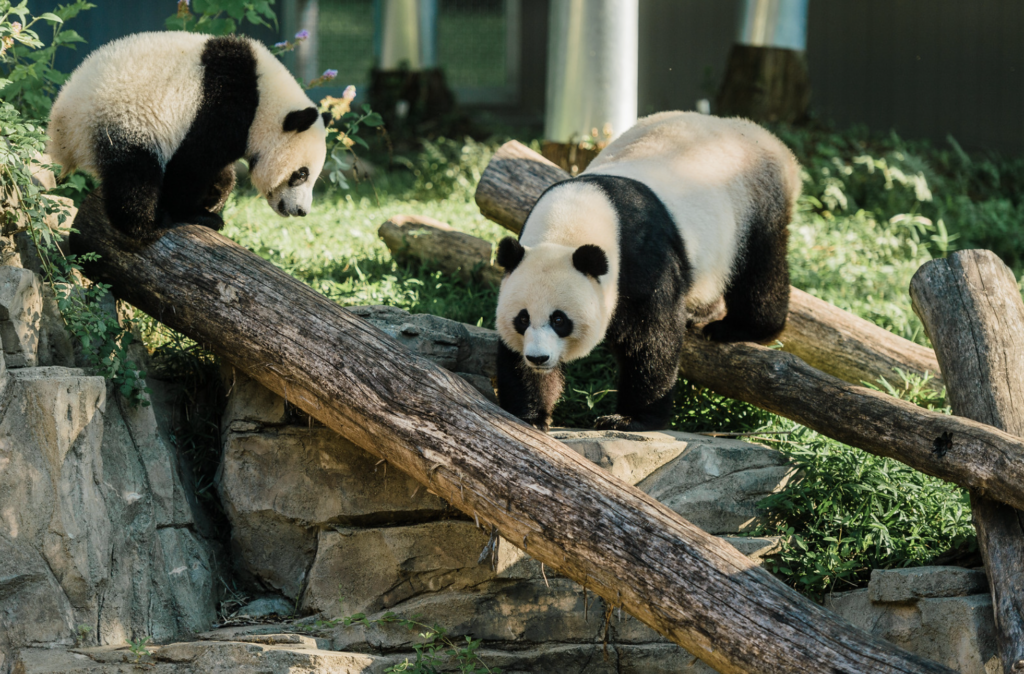The Smithsonian National Zoo is hosting a “Panda Palooza” Sept. 23 to Oct. 1 as it prepares for its giant pandas Tian Tian, Mei Xiang and Xiao Qi Ji to return to China in early December.
The National Zoo first received the two giant pandas in 2000 under an agreement that the pandas would stay at the National Zoo for 10 years before they went on to have several cubs, including Xiao Qi Ji. The National Zoo and China Wildlife and Conservation Association have renewed the contract three times since but will end the agreement this winter.
A September press release celebrated the impact of the giant pandas on guests of the National Zoo.
“Giant pandas Mei Xiang and Tian Tian, who arrived from China in 2000, and their four surviving cubs Xiao Qi Ji, Bei Bei (BAY-BAY), Bao Bao (BOW-BOW) and Tai Shan (tie-SHON), have created a living legacy of fans that spans multiple generations and countries,” the press release reads.
The National Zoo will host several events during Panda Palooza, such as panda themed play areas, film screenings, arts and crafts, live music concerts, and food and beverage items with the goal of helping visitors understand the importance of wildlife conservation efforts before the pandas leave, according to the National Zoo’s website.
Though giant pandas have been recently upgraded from endangered to vulnerable status after 30 years of steady progress, severe threats from humans have left just over 1,800 pandas remaining in the wild. Habitat loss has been the main cause of giant pandas’ endangerment as panda forests are cleared for farming and the timber trade.

Hazel Klitenic (CAS ‘26) told The Hoya that the National Zoo’s giant pandas had a special place in her heart growing up in the DMV area.
“I can’t believe the pandas are leaving. They were so appreciated and admired in D.C. I will miss them very much,” Klitenic said.
Brandie Smith, the John and Adrienne Mars director of the Smithsonian’s National Zoo and Conservation Biology Institute (NZCBI), wrote in the National Zoo’s press release the importance of remaining focused on species conservation moving forward.
“Caring for one animal and its future is the beginning of caring more deeply for the natural world and our place in it,” Smith wrote in the press release. “Although this farewell is bittersweet, we must celebrate these bears and their impact on fans and on our understanding, care and conservation of their species.”
China has used its giant pandas as a diplomatic tool since 1941, with recipients frequently involved in favorable trade deals, diplomatic initiatives or statements of support. The tradition dates back to the Tang Dynasty (618-907 C.E.) when two live “white bears” and dozens of pelts, which experts determined belonged to giant pandas, were sent to imperial Japan in 685 C.E.
Dennis Wilder (GRD ’79), a senior fellow for the Initiative for U.S.-China Dialogue on Global Issues at Georgetown University, said the pandas leaving the zoo has large-scale implications from a foreign policy perspective and may represent the deteriorating relationship between the United States and China.
“Panda diplomacy has been a tool of Chinese foreign policy for many years; when they are in a positive relationship with a nation, they often offer pandas as a way to show people-to-people friendship,” Wilder told the Hoya. “But the converse can be true. When they feel that there is a deteriorating relationship, they will withdraw the pandas and not want to renew these types of contracts.”
The U.S.-China panda partnership has made significant contributions to global biological and behavioral knowledge of giant pandas.
“For more than 50 years, NZCBI has led one of the world’s foremost panda conservation programs. Collaboration between Chinese colleagues and NZCBI’s team of animal care staff, scientists and researchers has been the cornerstone of those efforts,” the press release reads.
“While the 2023 departure closes a major chapter of an international animal care and conservation success story, NZCBI remains committed to continuing its efforts to secure and safeguard a healthy future for giant pandas.”










Lisa • Sep 30, 2023 at 7:07 am
Its so sad that the Pandas are leaving..I will truly miss seeing them here in D.C. I hope in some time in the future they can return
Elizabeth • Sep 29, 2023 at 7:38 pm
Wonderful article! The pandas will be dearly missed.
Pam • Sep 29, 2023 at 3:39 pm
Looking forward to my visit tomorrow with the panda’s. I’ve been a fan since their arrival in 1973. I have a collection of all types of memorabilia to include a scrapbook with pictures and newspaper articles when they first arrived in DC. I can spend hours just watching them play. It will be a sad day when they depart for China!!
Henry • Sep 29, 2023 at 12:18 pm
I LOVE IT. Gonna miss the pandas though.